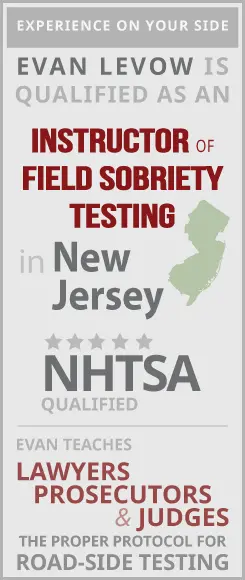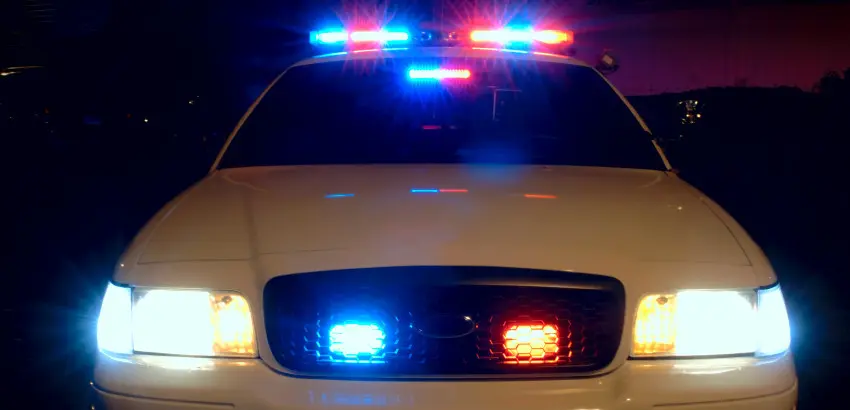The aggressive defense lawyers at Levow DWI Law, P.C. will thoroughly assess the legality of your vehicle stop. If we can determine that an arresting officer lacked probable cause when they pulled you over, the results of any subsequent chemical tests may be suppressed. The case could be dismissed entirely.
Types Of Vehicle Stops
Stops come under several categories and vary depending on the officer’s stated reason for stopping you. Investigating the specific, formally-cited motives a police officer acted on is essential to the defense of any DWI case.
Stops For Equipment & Documentation
Broken taillights, suspended registrations, and other deficiencies that pertain only to a driver’s vehicle – these are the most common, and most benign reasons for stopping a car. If no other cause can be provided to explain the stop, this may be an effective argument against a DWI charge, since there is no physical activity of the driver that is indicative of intoxication.
At the least, officers must allege that you were operating your vehicle in a manner that suggested impairment. Driving with a disabled headlight does not. If an officer fails to provide such reasonable explanations, but instructed you to submit to a chemical test or roadside sobriety test regardless, the results are subject to suppression in court.
Tips from Other Drivers
What happens when another motorist calls the police and reports a driver they believe to be intoxicated? These stops are complicated, particularly if an officer failed to note any erratic driving behaviors on the road.
For a “tip” to be valid, it has to be specific. For their part, officers must act in accordance with the particular information given, including:
- The vehicle’s make, model and color;
- Its specific location and direction of travel; and
- That the reporting individual believes its driver to be impaired by alcohol or drugs.
It is essential to determine what the individual actually told the police. If an officer pulls over a vehicle that does not match the description, the stop’s validity can be contested in court. And if the officer pulled over the correct vehicle, but failed to notice signs of impairment themselves, that can be used as a crucial element in your defense.
Speeding
The National Highway Traffic Safety Administration (NHTSA) does not consider speeding an indicator of driving under the influence. As a depressant, alcohol is actually linked to cautious, slower driving. It’s unlikely an allegation that you were driving over the speed limit would provide sufficient probable cause for a chemical test.
Erratic Driving
Allegations of erratic driving behavior or other visual cues, like straddling a lane marker or signaling inconsistently with your driving actions, are the foremost issues cited by police, prosecuting attorneys, and judges in justifying vehicle stops that result in DWI charges.
Irregular driving generally provides a legal basis for the administration of chemical tests or field sobriety testing. Beyond that, it can serve to establish the fact that a driver’s use of alcohol or drugs affected their capacity to safely operate a vehicle.
Can I Beat A Charge Based On Erratic Driving?
Allegations of erratic driving are possible to defend against.
In this situation, it is critical that you seek the guidance of an experienced DWI defense attorney. There may be perfectly reasonable, legal reasons to explain your driving behavior. Physical conditions, weather, and vehicle maintenance issues can substantially affect the way we drive. To explain driving behavior, it’s necessary to examine each of these possible factors.
Take pictures of the location where you were stopped and arrested. Seeing what else is in the area will help focus and highlight facts that can demonstrate that the weaving is not due to impairment, but perhaps due to a lack of available lighting, uneven terrain, or traffic patterns.
Unfortunately, many police officers jump to conclusions. At Levow DWI Law, P.C., we leave no stone unturned in your defense.
Are Roadblocks Legal?
Roadblocks and sobriety checkpoints are being used more frequently in New Jersey as a tool to detect and arrest drivers suspected of intoxication. But their Constitutionality is widely-disputed, and their use presents State courts with a considerable obstacle.
In particular, roadblocks are subject to Fourth Amendment concerns, which protect citizens from unreasonable searches and seizures. If the chemical test results obtained during a roadblock are challenged, the State must demonstrate the Constitutionality of the roadblock in a separate court hearing before a judge. The State has the burden of proving the overall reasonableness and validity of this warrantless search and seizure.
In setting up and executing the roadblock, police do not need to have probable cause to stop any individual driver, but they must show some rational basis for deploying an intrusive law enforcement technique like a checkpoint.
Generally, courts will look at the following factors to determine whether the roadblock was set up properly:
- the degree of discretion, if any, left to the officer in the field;
- the location designated for the roadblock;
- the time and duration of the roadblock;
- standards set by superior officers;
- advance notice to the public at large;
- advance warning to the individual approaching motorist;
- maintenance of safety conditions;
- degree of fear or anxiety generated by the mode of operation;
- average length of time each motorist is detained;
- physical factors surrounding the location, type, and method of operation;
- the availability of less intrusive methods for combating the problem;
- the degree of effectiveness of the procedure; and
- any other relevant circumstances
Your DWI lawyer must obtain all of the documentation for the establishment and set up of the road block and then analyze the administration of the roadblock to determine whether the roadblock was legal. Your counsel must assess whether officers properly complied with the guidelines of the roadblock in specific stops. The scope of detention has to be examined also. If a motorist is detained too long this becomes a custodial situation and different constitutional issues arise.
Contact an Expert in New Jersey DWI Defense
Every aspect of police conduct is complicated and must be analyzed. Let Levow DWI Law, P.C. assess whether your stop and arrest were lawful. If you were pulled over, tested, and arrested, there may be effective defenses against the charge.
Contact the experienced defense lawyers at Levow DWI Law, P.C. for a free consultation. With decades of groundbreaking legal experience, our attorneys have a proven track record in successfully defending the rights of New Jersey residents arrested for DUI. 1-877-789-5652 or fill out our contact form today.



